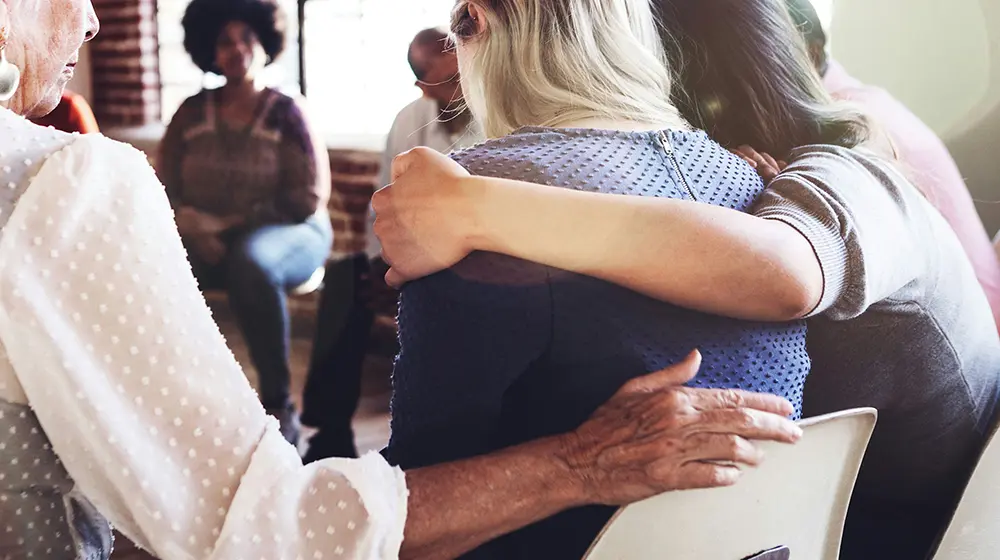Watching a loved one struggle with addiction or a co-occurring mental health disorder can be devastating, especially when they refuse help. For many families, the pain of seeing someone spiral into substance use while resisting treatment leads to a sense of helplessness and fear.
While not all states do, Florida offers an option for the family of a person who refuses to get help themselves. This option is what’s known as the Marchman Act. Facilities like Harmony Hills, which specialize in compassionate, evidence-based treatment for addiction and mental health, often work with families navigating this difficult process.
In this blog, we will walk you through everything you need to know about the Marchman Act, including what it is, how it works, how it can be enacted, and how it might offer hope in the most challenging times.
What Is the Marchman Act?
Before we get into how the Marchman Act works and how it can be legally enacted, let’s first discuss what exactly it is.
The Marchman Act is a law in the state of Florida that allows for a person to be involuntarily assessed, stabilized, and treated for substance abuse and co-occurring disorders. While for the most part, treatment only works if the person is choosing to participate under their own power, there are instances where legal intervention may be required, mostly in situations where the person is mentally or even physically incapable of recognizing their own need for help.
With the Marchman Act, family members, loved ones, someone who holds power of attorney, or specific authorities can petition the court to require someone to enter into treatment.
What Makes the Marchman Act Unique in Florida?
The Marchman Act is unique in that it’s a legal measure that was written and enacted specifically to address substance use disorders and mental health conditions. While Florida is not the only state that offers some sort of involuntary commitment statute, the Marchman Act is different in that it:
- Is explicitly tailored to substance abuse and co-occurring conditions
- Allows family members, friends, and medical professionals to initiate the petition
- Provides for both short-term stabilization and longer-term treatment orders
- Can be applied pre-crisis to prevent harm before a person becomes a legal or medical emergency
Who Can Be Committed Under the Marchman Act?

To qualify for involuntary assessment or treatment under the Marchman Act, a person must meet specific criteria:
- They are impaired by substance abuse or a co-occurring mental health condition
- They are unable to recognize their need for help
- They pose a danger to themselves or others, or are unable to make rational decisions about their care
- They have lost control over their substance use and are incapable of seeking treatment voluntarily
It’s also important to note that the person does not need to be violent or in legal trouble to be eligible under the Marchman Act. The law exists to intervene early, often before it reaches either of those points.
How to File a Marchman Act Petition
Should you want to invoke the Marchamn Act on a family member or loved one, you need to do the following:
- Go to the Clerk of Court in the county where the individual resides
- Request and complete a Marchman Act petition form for involuntary assessment
- Submit the petition, providing detailed information about the individual’s behavior, substance use, and the reasons you believe treatment is necessary
- The court will review the petition and determine if it meets the criteria
- If approved, the court will issue an order for involuntary assessment, typically lasting up to five days
- Law enforcement or other designated personnel will serve and transport the individual to a licensed treatment facility
While this can be done on your own, like any legal matter, consulting an attorney or a professional who specializes in Marchman Act cases is highly recommended. Not only can they assist in making sure the process is followed correctly and legally, but they can also help make sure everyone remains safe and respected during the process.
What Happens After a Marchman Act Is Filed?
After all the paperwork has been filed and granted, the person who has been Marchman Acted is transported to a local treatment center. From there, the following happens:
- Assessment and Stabilization – The person undergoes a standard medical and psychological evaluation that is done by everyone upon entry into a treatment program. From there, any sort of medical stabilization services are provided as needed.
- Treatment Hearing – Once the person has been evaluated and stabilized, the results of the assessment are presented to the court for a ruling. At that point, should it still be deemed necessary, the court will order involuntary treatment.
What Rights Does the Individual Have?
Even with involuntary treatment, the person who is being Marchman Acted still has all the legal rights they would under any other circumstance. This includes:
- The right to an attorney, either private or court-appointed
- The right to notice of the petition
- The right to attend hearings and present evidence
- The right to appeal the court’s decision
By offering these protections, it ensures that the Marchman Act remains a civil, not punitive, legal process focused on healing, not punishment.
Marchman Act vs. Baker Act: What’s the Difference?

You may be reading this and thinking to yourself that the Marchman Act sounds a lot like another law that exists in the state of Florida called the Baker Act. While the Baker Act is also a law that can be used in order to involuntarily commit someone, the two serve different purposes and apply to completely different situations.
The Marchman Act is specifically designed for individuals struggling with substance abuse or co-occurring addiction-related issues. It focuses on helping people who are impaired by drugs or alcohol and unable to seek treatment voluntarily. The Baker Act, however, is used exclusively when someone is undergoing a mental health crisis and is deemed to be either a threat to themselves, to others, or both.
Another major difference between the two is how the petitions get filed and who can initiate the process. A Marchman Act petition is filed by family members, loved ones, a power of attorney, or even certain treatment professionals. On the other hand, the Baker Act must be initiated only by a law enforcement officer, doctor, or licensed mental health professional.
Common Misconceptions About the Marchman Act
Despite more and more attention being brought to the concept of the Marchman Act, there are still a lot ot myths and common misconceptions about how it works. Let’s take a look at some of them and clear them up:
- It’s the same as jail – The Marchamn Act is not a criminal law, it is a civil law. Furthermore, in some instances, the Marchman Act even allows for outpatient treatment, meaning the person can live at home while undergoing treatment.
- They will be locked up forever – Another factually incorrect statement. Treatment programs have an end date (typically 30 to 60 days).
- They have to overdose first – The purpose of the Marchman Act is to allow for pre-crisis intervention in order to hopefully avoid an overdose entirely.
- There’s no hope if they don’t want help – While this isn’t entirely untrue, in some instances, a person isn’t able to seek help, either physically, mentally, or both. The Marchamn Act exists to get those people the help that they need.
Is the Marchman Act Effective?
Like any legal measure put in place, the overall effectiveness of the Marchman Act depends on a number of factors, such as:
- The quality of the treatment program
- The support system the individual has after treatment
- Whether the underlying mental health issues are also addressed
- The person’s willingness to engage once stabilized
When to Consider Involuntary Commitment in Florida
So, when is the right time to invoke the Marchman Act? Well, you may want to consider it if:
- Your loved one refuses treatment, no matter how severe their addiction
- They are experiencing medical, financial, or legal problems due to substance use
- Their behavior has become dangerous, erratic, or threatening
- You’ve exhausted all other options, including family interventions and outpatient therapy
How Families Can Prepare Emotionally and Legally
Given the fact that the person being Marchman Acted is someone very close to you, the whole process can be very emotional. It can also come with feelings of guilt, fear, and uncertainty.
Before and even during filing, you may want to consider doing the following:
- Seek a support group or counseling help for yourself
- Be ready for mixed reactions from your loved one
- Gather all necessary documentation needed, such as text messages, medical records, and/or police reports
- Consult with an attorney or a Marchman Act specialist
- Have a treatment center picked out and ready to go
Treatment Options After Marchman Act Commitment
After a Marchman Act order is issued, the person will go to a treatment facility for care. At Harmony Hills, we provide:
- Residential and outpatient programs tailored to individual needs
- Dual diagnosis treatment for co-occurring mental health issues
- Therapeutic modalities such as CBT, DBT, trauma therapy, and family counseling
- Aftercare planning to ensure long-term recovery
Get Support for Your Loved One Today
If someone you love is struggling with addiction and refuses help, the Marchman Act may be the lifeline you need. At Harmony Hills, we’re here to support you with compassionate care, professional guidance, and a treatment environment designed for healing and growth.
Contact us today to learn more about how the Marchman Act works and how we can help your family move forward together.








